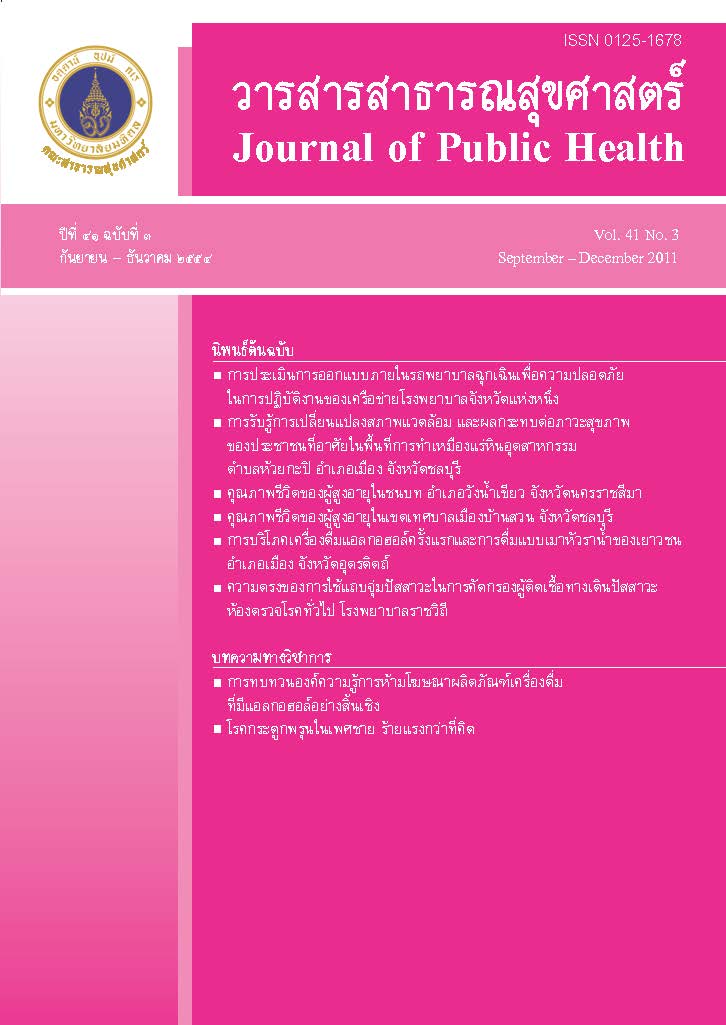โปรแกรมการสร้างเสริมสุขภาพสำหรับผู้ป่วยโรคเบาหวานชนิดที่ 2 ที่ไม่สามารถควบคุมระดับน้ำตาลในเลือด
Keywords:
Uncontrolled type 2 diabetes, Protection motivation theory, Social support, ผู้ป่วยเบาหวานชนิดที่ 2 ที่ไม่สามารถควบคุมระดับน้ำตาลในเลือดได้, ทฤษฏีแรงจูงใจในการป้องกันโรค, แรงสนับสนุนทางสังคมAbstract
ABSTRACT
This quasi-experimental study was to examine the effectiveness of a health promotion program for uncontrolled type 2 diabetes in Ayuthaya province, Thailand by applying the protection motivation theory and social support from family members in promoting an appropriate dietary intake, enhanced physical activities, medication, therapeutic foot care, and general hygiene. One group of thirty-eight persons was selected to be the experimental group, and another forty persons were selected to be in the control group. The research procedure lasted for four weeks of experimentation and four weeks of follow-up. Data was collected by self-administered questionnaires. Statistical analysis was performed by using mean, median, standard deviation, Independent t-test, and the Repeated oneway ANOVA.
The results showed that, after the experiment and follow-up, the experimental group had a significantly higher mean score of knowledge about diabetes, its perceived severity, vulnerability, self-efficacy, response efficacy, and healthy behavior promotion regarding appropriate dietary intake, enhanced physical activities, medication, therapeutic foot care, and general hygiene than before the experiment (p-value <0.016). The experimental group also had a significantly higher mean score than the control group regarding these factors (p-value < 0.016).
The involvement of family members in the health promotion program brought about increasingly higher levels of perceived self-efficacy to further enhance sustainable practices concerning positive behavior changes among the patients.
Key words: Uncontrolled type 2 diabetes, Protection motivation theory, Social support
Downloads
Issue
Section
License
Creative Commons License CC-BY-ND


